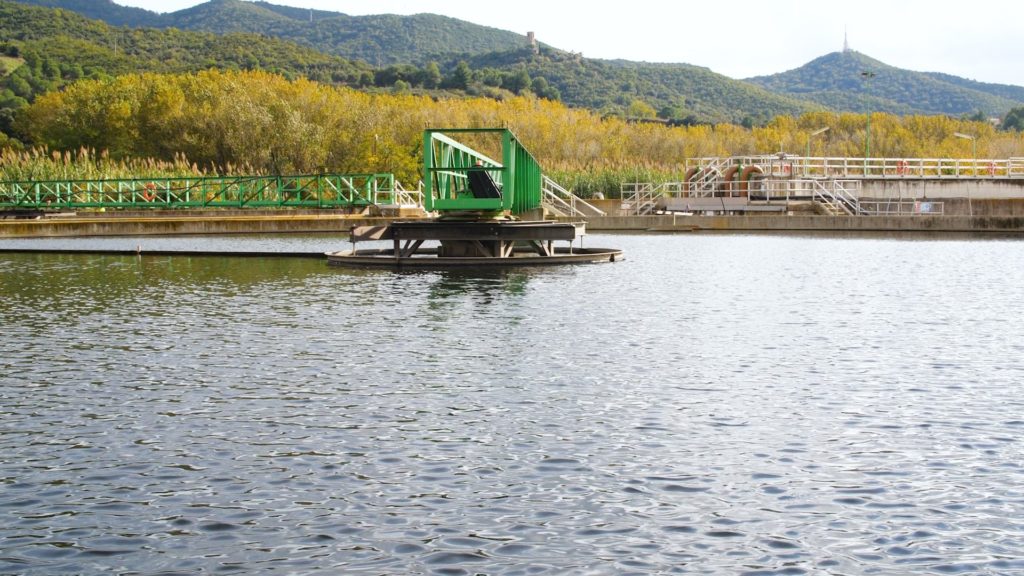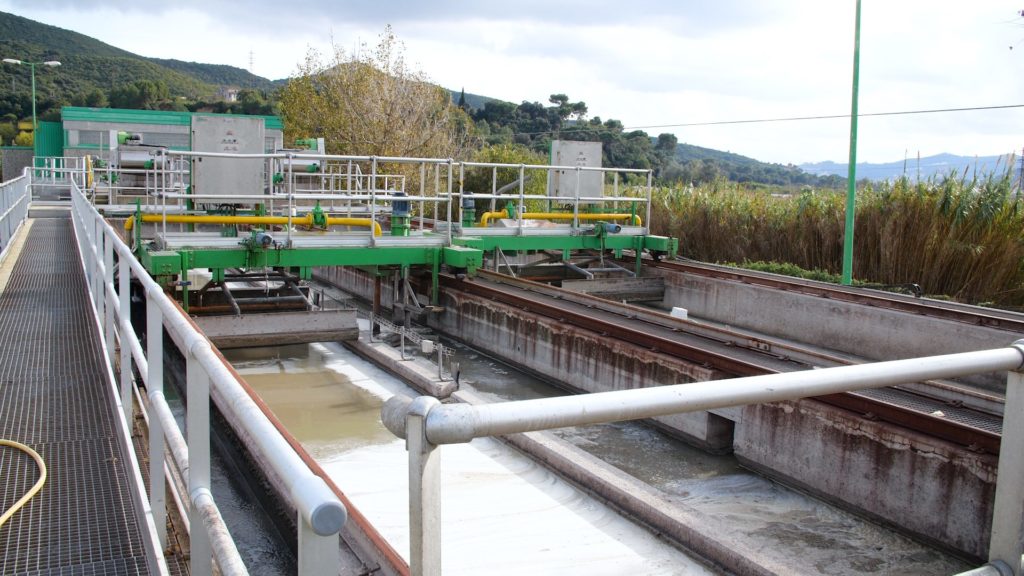Water-Mining: Taking Circular Economy Into the Water Sector
Circular economy in the water sector is not as prominent as in other sectors. The EU funded project WATER-MINING is testing circular economy schemes in the water cycle to demonstrate its feasibility. REVOLVE interviewed the head of Water Technology line at the Water, Air and Soil Unit of EURECAT and member of the team involved in the WATER-MINING project, Sandra Casas.
What is EURECAT?
EURECAT is a private research center based in Catalonia devoted to helping companies to innovate. We are working in several areas: biotechnology, industrial, digital, and sustainability – an area intrinsically linked to the WATER-MINING project.
What are your roles within EURECAT and the WATER-MINING project?
I am the head of the research line of water in the unit of Water, Air and Soil – within the area of sustainability. I am also part of EURECAT’s team involved in WATER-MINING. We are coordinating one of the case studies in La Llagosta (Spain), as well as one the project’s side-links to the urban wastewater treatment. My focus lies in all types of water treatment, as well as water related issues such as monitoring, modelling and management tools related to water.
As part of the Water, Air and Soil Unit at EURECAT, could you tell us how much we are missing by not implementing a smart and circular water treatment process?
We are missing a lot of opportunities, especially new business opportunities because water has a lot of embedded resources. There are a lot of resources that can be recovered from wastewater – from fertilizers to energy to coagulants.
For instance, phosphorus is something that is now becoming scarce, but we can find phosphate it in wastewater making it a potential future source for this element. That is why we think that projects like WATER-MINING have such an important future, because they are obtaining resources that can be reintroduced into the market.
However, in practical terms, wastewater treatment plants are still linear: they consume resources to purify water while investing a lot in that process. They are not usually focusing on recovering anything except in some minor cases where water treatment plants are reclaiming water, but this is on a minor scale in water scarce areas that urgently require new water sources.

How is EURECAT supporting the transition towards a more circular water treatment?
As a research center, we have several projects focused on the circularity of the water sector, with WATER-MINING a good example. What we are trying to do in these projects is to demonstrate the feasibility of implementing circularity in water treatment. For instance, in WATER-MINING we are redesigning the main water treatment line of the La Llagosta wastewater treatment plant. The objective is that instead of consuming energy for treating wastewater, we recover energy with a novel anaerobic treatment combined with partial denitrification followed by an anammox system.
In that process, we are also recovering phosphates for fertilizers using a Wetsus technology and water for industrial use. Instead of wasting the water after it has been treated, we are maximizing the recovery of it. We are demonstrating this at a pilot scale to obtain all the numbers and figures to show the technical, economical, and environmental feasibility of these circular schemes.
What is WATER-MINING?
WATER-MINING is a European Union funded research project boosting the circular economy in the whole water cycle, from the production, through desalination, to wastewater treatment, or even in the industrial water cycle. The project works with six sector-specific case studies in Italy, Spain, Portugal, the Netherlands and Cyprus, with the objective of demonstrating different technical activities to be able to implement circular economy schemes in different sites in order to recover energy, water and other resources from the different sites.
Do you think that we are still facing a technology gap to be able to implement circular water treatment plants?
I think the major part of the technology is almost ready. It is true that the technology could be optimized, and it depends a lot on the type of product that you want to recover. Not all recoveries are at the same stage but some of them are ready. It is just a matter of how to implement them.
The wastewater treatment plants already exist so they need to be upgraded and that means an investment. The issue is how to make that investment and how to recover the cost of the investment to apply this real circular economy scheme.
Another issue is also that these products that we recover – such as the fertilizers –need to be certified as safe to use, and there is still a legislative gap on how to introduce them back into the market. It is a barrier to overcome. Nevertheless, there has been progress in recent years, but we are still pushing to go towards that direction.

Which recovery process is technologically the most advanced?
One of the main circularities that can be found is the reuse of treated wastewater. The technology enabling the reuse of water from urban water treatments plants for other purposes, such as irrigation or industrial processes, is ready. If it is not applied, it is because there is a gap in the implementation due to the business model and the legislative framework.
For instance, in water scarce areas such as Spain we can find some wastewater treatment plants that are already implementing that process. They are producing
water from wastewater and reusing it for agriculture, environmental purposes or even for cleaning urban areas. However, it is not very common yet. It only takes place in areas where the water is very scarce because there are difficulties in the governance of reused water.
Implementing these schemes means that you have some extra costs, which undermines the business plan behind recovering high-quality water from wastewater as it is difficult to compete with the price of normal drinking water. While the technology exists to make the process simple and keep costs down, existing legislation requires companies to take extra steps to ensure that recovered water is safe to use, thus increasing costs.
And which one is the least developed?
That is a difficult question, but I would say that the extraction of hydrogen from water is one of the least developed technologies in this field. There is a lot of movement around this and I think it could be a great source of energy in the future if it is recovered from wastewater. But the technology is not ready yet to be implemented widely or to reach the market.
What motivated EURECAT to be part of BforPlanet 2021?
All the projects that we are conducting are aligned with reaching the sustainable development goals (SDGs) – the main focus of this conference. We are working for clean sanitation, which falls under the SDG 6. That’s why we are here at BforPlanet 2021. Especially because it is something that needs to be spread. People need to hear more about circularity, especially in the water sector where the main actors are not aware of it. We need to raise awareness.
Do you think it is important that spaces like BforPlanet – where business are put at the center to fight climate change – exist and happen more often?
Yes, it is important because it is a good way to create synergies. These new resources that we are recuperating from wastewater need to have a business model behind them, so we need companies interested in this. Eventually, those companies could really implement these circular schemes we are developing and testing. These types of events can help to create these synergies and make increased circularity a reality.